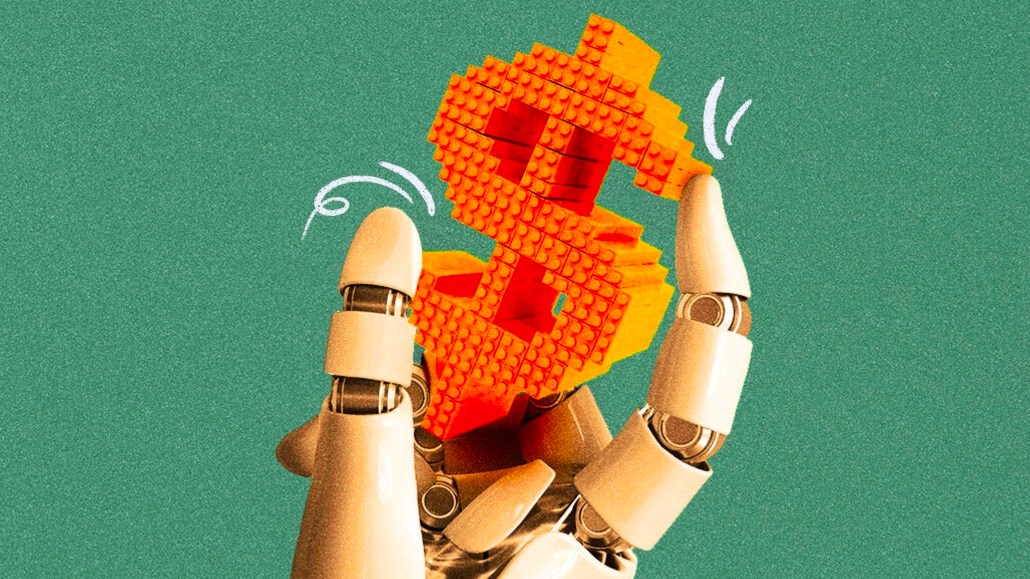Save 50% on a 3-month Digiday+ membership. Ends Dec 5.
Digiday+ Research: Most brands and retailers employ generative AI, with chatbots topping the list of uses

This research is based on unique data collected from our proprietary audience of publisher, agency, brand and tech insiders. It’s available to Digiday+ members. More from the series →
Interested in sharing your perspectives on the media and marketing industries? Join the Digiday research panel.
Brands and retailers are recognizing the impact that generative artificial intelligence can have on their businesses — and they’re making the investments to utilize the technology.
Just look at the Super Bowl: Microsoft and Google aired commercials during the game marketing AI features. And Avocados From Mexico used AI tools to build its Super Bowl-adjacent campaign.
Generative AI is even permeating Digiday+ Research survey results — particularly one conducted among 57 brand and retailer professionals late in the fourth quarter of 2023.
Digiday’s survey found that well over half of brands and retailers were already using generative AI by the end of last year. Fifty-eight percent of brand and retailer pros said in late Q4 that their companies were investing in or using generative AI or natural language processing tools.
This isn’t a surprise, considering that just one quarter prior to that, 80% of brand pros told Digiday that their companies were using some form of AI tech. And nearly three-quarters of the brands using AI at the time (71%) said they were using generative AI specifically.
It is worth noting, though, that more than a third of brands and retailers (35%) said at the end of last year that they weren’t using generative AI just yet. In other words, there’s still quite a bit of room for the technology to grow among brand marketers.
Ad position: web_incontent_pos1
Digiday’s Q4 survey found that chatbots are the most popular use of generative AI technology among brands and retailers. Just under half of brand and retailer pros (49%) told Digiday that their company is using chatbots or AI assistants.
Copy generation was the second-most popular use of AI for brands and retailers, with 46% of brand and retailer pros saying their companies use AI to generate copy. Social media listening rounded out the top three, with 40% of brands and retailers saying they use AI for this application.
Text-related applications of AI tech earned an honorable mention among brands and retailers, Digiday’s survey found. Slightly less than a third of brand and retailer pros (30%) said their companies use AI for text enhancement or recommendation software (like autocorrect, for example). Meanwhile, just under a quarter of brands and retailers (23%) said they use text sentiment analysis, and 21% said they use voice-to-text tools for things like translation and transcripts.
Ad position: web_incontent_pos2
While brands are clearly sold on the growing importance of generative AI technology to their businesses, most aren’t necessarily ready to invest in building their own teams to facilitate their use of generative AI tools, according to Digiday’s survey. Nearly two-thirds of brand and retailer pros (61%) said late in Q4 2023 that they use third-party partners or vendors to build their AI or NLP applications — that’s a significant percentage.
The remainder of respondents were split on whether they build their AI tools in-house or use a combination of in-house and third-party tools. Nineteen percent of brand and retailer pros said their AI and NLP applications are built internally, and the same percentage said they use a combination of in-house teams and third-party partners.
More in Marketing

Ulta, Best Buy and Adidas dominate AI holiday shopping mentions
The brands that are seeing the biggest boost from this shift in consumer behavior are some of the biggest retailers.

U.K. retailer Boots leads brand efforts to invest in ad creative’s data layer
For media dollars to make an impact, brands need ad creative that actually hits. More CMOs are investing in pre- and post-flight measurement.
Ad position: web_bfu



